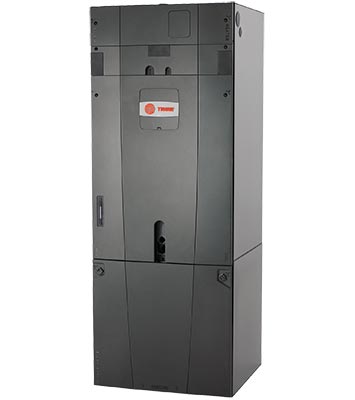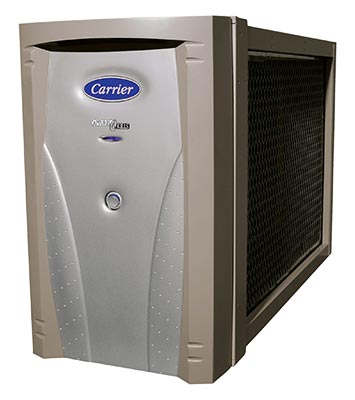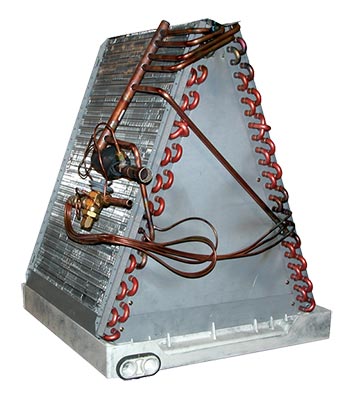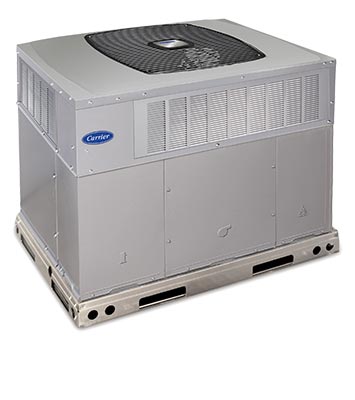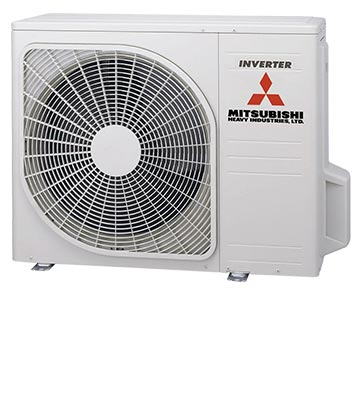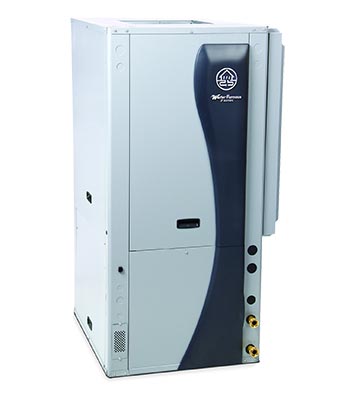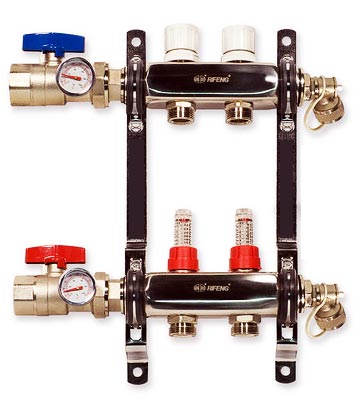HVAC Equipment
The many options available for indoor comfort control equipment can be daunting to the average homeowner. Although your HVAC contractor should be recommending the right equipment based on your home and needs, it is extremely helpful to have a basic understanding of the options available to you. This is because some HVAC contractors will only recommend things they sell and install, when sometimes a different solution is better for your home.
Air Conditioner
Air conditioners cool your home by compressing a gas called refrigerant (R-410A). When compressed, heat energy is extracted from the gas, and the gas condenses to a chilled liquid. The heat energy is dissipated into the outdoor air and the chilled liquid is pumped inside to the indoor coil (evaporator coil or air handler). The efficiency of an air conditioner is measured by a Seasonal Energy Efficiency Rating (SEER). Learn more: Air conditionersHeat Pump
A heat pump works just like an air conditioner in the cooling season by compressing refrigerant, and then pumping the condensed, chilled liquid to the indoor coil. The primary difference is that in the winter, a heat pump can reverse the process and provide heat for your home. However, heat pumps are not designed to heat in frigid weather. Learn more: Heat PumpsAir Handlers / Fan Coils
An air handler is used in the absence of a furnace. They are also called fan coils. When a furnace is used for heating, the fan motor in the furnace is also used in the summer for air conditioning. When using another heating source is used (such as geothermal) an air handler (the fan motor from a furnace and indoor coil).Gas Furnace
A gas furnace is one of the most common ways to heat a residential home. In areas in Tallahassee county without natural gas, propane is used which can get pricey. A heat pump and gas furnace combination can save money. Modern furnaces feature variable speed fan motors and modulating flames for greater efficiency.Indoor Air Quality
Indoor air quality products play a key role in the overall comfort and health of a home. For example, proper humidity can save on cooling and heating bills, because dry air in the winter feels colder, and humid air in the summer feels hot! IAQ products such as ventilators, UV lamps and air cleaners purify, protect and refresh air in the home.Evaporator Coil
Believe or not, your air conditioner wouldn't be able to provide one bit of cool air to your home if you didn't have an indoor coil. An evaporator coil is the type of indoor coil you typically have if you use a furnace. They sit on top of the furnace, and contain the chilled refrigerant pumped from the air conditioner. Coil efficiency is maintained with a UV lamp.Thermostats
Digital thermostats like the Nest® thermostat shown to the left have transformed indoor comfort control. Modern thermostats offer a lot more than simple temperature adjustments. 7-day programming, humidity control, Internet access and more are available. You'll have better control of your indoor comfort, and with proper use can save money on utility bills!Packaged HVAC System
A packaged system combines all of the components of a split system into a single foot print that is either mounted on the roof, or on a slab in the yard. Packaged systems are designed for homes with limited space inside, that do not have room for indoor equipment. Although they offer convenience, they do not typically have the same efficiency.Ductless Air Conditioning
The days of heating and cooling a living space that doesn't have ductwork are now a thing of the past. Ductless heating and air conditioning systems offer the same efficiency and quiet comfort as their big brothers. Many manufacturers make ductless systems including Mitsubishi, LG, Fujitsu and more. We haven't tested and compared, but from the field is seems that Mitsubishi systems are reliable with great warranties.Geothermal Heat Pump
The earth stores massive amounts of thermal energy that remains constant year round. A geothermal heat pump uses large "earth loops" to tap into this energy. Heating and air conditioning is all about moving heat energy, and using the thermal energy underground to do this if much more efficienc than using the air like a normal air conditioner or heat pump does.Radiant Heating System
A radiant heating system typically must be installed during new construction, but it provides a superior form of heating over forced air systems. Tubing is laid in the floor in each room. How water is circulated through the tubing using a tankless water heater or boiler. This causes a draft-free blanket of warmth to rise from the floor to the ceiling. No more cold feet like you can have with a forced air heating system.Tankless Water Heater
Have you ever jumped in the shower after the rest of the house has beat you through only to be hit with cold water? Not a way to start the day, but this is a drawback to a traditional boiler. Another drawback is that a boiler heats water 24x7. If you're at work or on vacation, you're paying to keep water hot in your home. A tankless water heater heats water on demand so you only pay for what you use, and you never run out.
HVAC Equipment






